- Home
- Tad Williams
The Stone of Farewell Page 11
The Stone of Farewell Read online
Page 11
Deornoth looked around at the ragged party, at the white, frightened eyes in the dirt-streaked faces. “That is a good idea, Father,” he said. “We shall do that.”
They made a tiny fire in a hastily-dug pit surrounded with stones, more for light than anything else. Heat would have been most welcome—with nightfall, the forest air was turning bitterly cold—but they could not risk so much of a display. There was nothing to eat, in any case. Their pace had been far too hurried for any hunting.
Together, Father Strangyeard and Duchess Gutrun were cleaning Sangfugol’s wound and rewinding the bandage. The white and black feathered arrow, which had knocked the harper down late yesterday afternoon, seemed to have struck the bone. Despite the care taken with its removal, not all the arrowhead had come out. When Sangfugol could talk, he complained that the feeling in his leg was nearly gone; at the moment, he was in shallow, uneasy sleep. Vorzheva stood nearby, looking on sorrowfully. She had been pointedly shunning Josua, who did not seem much bothered.
Deornoth silently cursed his thin cloak. If I had only known we would be tramping the open woods, he lamented, I would have brought my fur-hooded riding cloak. He smiled grimly at his own thoughts and suddenly laughed aloud, a short bark of amusement that caught the attention of Einskaldir, squatting nearby.
“What’s funny?” the Rimmersman asked, frowning as he worked his hand-axe up and down a small whetstone. He held it up, testing the blade with his callused thumb, then laid it back against the stone once more.
“Nothing, really. I was just thinking about how stupid we’ve been—how unprepared.”
“Waste of time, crying,” Einskaldir growled, his eyes never leaving the blade as he lifted it to the red firelight. “Fight and live, fight and die, God waits for all.”
“It’s not that.” Deornoth stopped for a moment and considered. What had begun as an idle thought had grown into something more; suddenly, he was afraid to lose his grip on it. “We have been pushed and pulled,” he said slowly, “driven and drawn. We have been chased for three days since we escaped Naglimund, with barely a moment free from fear.”
“What is to fear?” Einskaldir said gruffly, tugging at his dark beard. “If they catch us, they will kill us. There are worse things than to die.”
“But that’s just it!” Deornoth said. His heart was pounding. “That’s just the point!” He leaned over, realizing that he had raised his voice almost to a shout. Einskaldir had stopped scraping his axe-blade to stare. “That is what I wonder,” Deornoth said more quietly. “Why haven’t they killed us?”
Einskaldir looked at him, then grunted. “They tried.”
“No.” Deornoth was suddenly sure. “The diggers ... the Bukken as your people call them ... they tried. The Norns haven’t.”
“You are mad, Erkynlander,” Einskaldir said in disgust. Deornoth bit back a retort and crawled around the fire pit toward Josua.
“My prince, I need to speak with you.”
Josua did not answer, again in one of his faraway moods. He sat, staring at Towser. The old jester slept with his back against a tree, bald head bobbing on his chest. Deornoth did not see anything particularly interesting about the old man’s slumber, so he interposed himself between the prince and the object of his attention. Josua’s face was almost invisible, but enough of a glow escaped the fire pit that Deornoth thought he saw Josua’s eyebrow lift in mild surprise.
“Yes, Deornoth?”
“My prince, your people need you. Why are you so strange?”
“My people are very few now, aren’t they?”
“They are your people still—and they need you all the more, since our danger is so great.”
Deornoth heard Josua take a breath, as if in surprise or in preparation for some angry remark. Instead, when the prince spoke, his voice was calm. “We are in bad times, Deornoth. Everyone faces them in their own way. Was this what you wished to discuss with me?”
“Not all, my lord.” Deornoth crept a little closer, until he sat within arm’s reach of the prince. “What do the Norns want, Prince Josua?”
Josua chuckled ruefully. “I should think that was obvious enough. To kill us.”
“Then why have they not done so?”
There was a moment of silence. “What do you mean?”
“Just what I asked. Why have they not killed us? They have had many opportunities. ”
“We have been fleeing them for ...”
Deornoth impetuously grasped Josua’s arm. The prince was very thin. “My lord, do you believe that the Norns—the Storm King’s minions who destroyed Naglimund—could not catch a dozen hungry and wounded men and women?”
He felt Josua’s arm grown taut. “And that signifies... ?”
“I don’t know!” Deornoth let go of the prince and picked up a stick from the ground, nervously plucking at the bark with his fingernails. “But I can’t believe they couldn’t have brought us to bay if they had wanted to.”
“Usires on the Tree,” Josua breathed. “I am ashamed you have had to take the responsibility that is rightfully mine, Deornoth. You are right. It makes no sense.”
“Perhaps there is something more important than our deaths,” Deornoth said, thinking. “If they want us dead, why did they not surround us? If a walking corpse could be upon us almost before we knew, why not the Norns?”
Josua pondered for a moment. “Perhaps they fear us.” Again the prince was silent. “Call the others,” he said finally. “This is too grave to keep between the two of us.”
When the rest were gathered, huddling around the small fire, Deornoth looked over their numbers and shook his head. Josua, himself, Einskaldir and Isorn, Towser—groggy from sleep—and Duchess Gutrun; with Strangyeard now finding a place, and Vorzheva tending Sangfugol, they were all accounted for. Only nine left—could that be? They had buried Helmfest and the young handmaiden two days ago. Gamwold, an older guardsman with a gray mustache, had died from a long fall in the attack that felled Sangfugol. They had not been able to retrieve Gamwold’s body, let alone bury him. Unwillingly, they had left him lying on a ledge of the open ridge, surrendered to the attentions of wind and rain.
Nine left, he thought, Josua is right—itis a small kingdom, indeed.
The prince had finished explaining. Strangyeard spoke up hesitantly.
“I hate even to say this,” he began, “but ... but perhaps they are only toying with us, as ... as does a cat with a rat it has cornered.”
“What a horrible thought!” Gutrun said. “But they are heathen, so anything is possible.”
“They are more than heathen, Duchess,” Josua said, “they are immortal. They have lived, many of them, since before Usires Aedon walked the hills of Nabban.”
“They can die,” Einskaldir said. “I know.”
“But they are terrible,” Isorn said. His wide frame shuddered. “Now I know that they are the ones who came out of the north when we were held captive in Elvritshalla. Their very shadows are cold—like a wind from Huelheim, the land of death.”
“Just a moment,” Josua said. “You have reminded me of something. Isorn, you said once that when you were captive, some of your fellows were tortured.”
“Yes. I will never forget.”
“Who did it?”
“The Black Rimmersmen, the ones who live in the shadow of Stormspike. They were Skali of Kaldskryke’s allies—although, as I think I told you, Prince Josua, I don’t believe Skali’s men got what they bargained for. In the end, they were almost as terrified as we prisoners.”
“But it was the Black Rimmersmen who tortured you. What about the Norns?”
Isorn thought for a moment, his broad face pensive. “No ...” he said slowly, “I don’t believe the Norns had anything to do with it. They were just black shadows in hooded cloaks, passing back and forth to Elvritshalla. They seemed to take little notice of anything—although we did not see them much, for which I was very grateful.”
“So,” said Josua, “it does not seem
that the Norns are interested in torture. ”
“It does not seem to bother them much,” Einskaldir growled. “And Naglimund showed that they do not love us.”
“Still, I somehow do not think they would follow us all the way through Aldheorte Forest just for enjoyment.” The prince frowned, thinking. “I find it hard to think of why they might fear us, straggling lot that we are. What else could they want?”
“To put us in cages,” Towser said grumpily, rubbing his sore legs. The long day’s walking had been harder on him than on anyone else except Sangfugol. “To make us dance for them.”
“Quiet, old man,” Einskaldir snarled.
“Do not order him,” Isorn said, giving Einskaldir a purposeful look—a difficult thing to do in near-darkness.
“I think Towser is right,” Strangyeard said in his quiet, apologetic way.
“What do you mean?” Josua asked.
The archive-master cleared his throat. “It seems to make sense,” he began, “—not that they want us to dance, I mean.” He tried to smile. “But the putting us in cages. They may want to capture us.”
Deornoth was excited. “I think Strangyeard has it! They did not kill us when they might have. They must want us taken alive.”
“Or want some of us alive,” Josua said carefully. “Perhaps that is why they used the corpse of that poor young pikeman—to get safely among us and then spirit one or more of us away.”
“No,” Deornoth’s excitement suddenly dissipated, “for why didn’t they surround us then, when they had the chance? I asked myself that earlier and I still cannot answer.”
“If they wanted to ... to capture one of our number,” Strangyeard offered, “perhaps they were afraid that one would be killed in a struggle.”
“If so,” Duchess Gutrun said, “it is surely not me they are after. I am scarcely of any use, even to myself. They are after Prince Josua.” She made the sign of the Tree over her breast.
“Of course,” Isorn said, putting his big arm around his mother’s shoulder. “Elias sent them to capture Josua. He wants you alive, my lord.”
Josua looked uncomfortable. “Perhaps. But why are they shooting arrows at us now?” He pointed to where Sangfugol lay, Vorzheva holding the harper’s head as she gave him a drink of water. “It seems that there is even greater danger of accidentally killing their target, now that we are on the move.”
No one could answer this. They sat uncomfortably for some long while, listening to the sounds of the damp night.
“Hold a moment,” Deornoth said. “We are confusing ourselves, I think. When have we been attacked by them?”
“Early in the morning after the night that ... that the young pikeman came to our fire,” Isorn said.
“And was anyone hurt?”
“No,” Isorn said, thinking back. “But we were lucky to escape. Many of the arrows missed by very little.”
“One of ’em took my hat off!” Towser said querulously. “My best hat! Lost!”
“Pity it wasn’t your best head,” Einskaldir snapped.
“But the Norns are very good archers,” Deornoth continued, ignoring the Rimmersman and the old jester. “And when has anyone else been shot?”
“Yesterday!” Isorn said, shaking his head. “You should know. Gamwold dead, Sangfugol badly wounded.”
“But Gamwold wasn’t shot.”
Everyone turned to look at Josua. There was a sudden power in the prince’s voice that sent a thrill up Deornoth’s back.
“Gamwold fell,” the prince said. “All of our party who’ve been killed except for Gamwold died from our battles with the diggers. Deornoth has it aright! The Norns have been chasing us for three days—three full days—and have fired upon us many times. Sangfugol is the only one who has been hit.”
The prince stood up, his face disappearing from the fireglow. The others could hear him pacing. “But why? Why did they risk an arrow then? We were doing something that frightened them. Doing something—” He stopped. “Or going somewhere ...”
“What do you mean, Prince Josua?” Isorn asked.
“We were turning east—toward the heart of the forest.”
“That’s true!” Deornoth said, thinking back. “We had been going south since we came down the Stile from Naglimund. That was the first time we tried to turn east, in toward the deeper part of the forest. Then, when the harper was shot and Gamwold fell, we retreated back down the hill and kept walking south along Aldheorte’s outskirts thereafter.”
“We are being herded,” Josua said slowly. “Like ignorant animals.”
“But that is because we tried to do something that worried them,” Deornoth pointed out. “They are trying to keep us from going east.”
“And we still do not really know what for,” Isorn said. “Herded toward capture?”
“More likely to slaughter,” Einskaldir said. “They just want to do the killing at home. Have a feast. Invite guests.”
Josua actually smiled as he sat down, the fire catching a quick gleam of teeth.
“I have decided,” he said, “to decline their invitation.”
An hour or two before dawn, Father Strangyeard came and tapped Deornoth on the shoulder. Deornoth had heard the archive-master crawling about in the darkness, but the touch of a hand on his shoulder still made him start.
“Only me, Sir Deornoth,” Strangyeard said hastily. “It is my turn to take watch.”
“That’s not necessary. I don’t think I will sleep, anyway.”
“Well, then, perhaps we can ... can share the watch. If my talk will not irritate you.”
Deornoth smiled to himself. “Not at all, Father. And you need not call me ‘Sir.’ It is nice to have a calm hour or so—we have had precious little calm lately.”
“It is just as well, I suppose, that I am not left to stand guard alone.” Strangyeard said. “My sight is not good, you know—and that is in my one remaining eye.” He chuckled apologetically. “There is nothing more frightening than to see the words in my beloved books growing fainter every day.”
“Nothing more frightening?” Deornoth asked gently.
“Nothing.” Strangyeard was firm. “Oh, not that I do not fear other things, but death, just for example—well, my Lord will take me when He knows it is time. But to spend my last years in darkness, unable to see the writings that are my work on this earth ...” The archivist broke off, embarrassed. “I am sorry, Deornoth, I am babbling of trivialities. It is this hour of the night. At home in Naglimund, I often wake at this time, just before the sun comes up ...” The priest paused again. Both men thought silently of what had happened to the place where they had lived.
“When we are safe, Strangyeard,” Deornoth began suddenly, “if you cannot read, I will come and read to you. My eyes are not as quick as yours, nor my mind, but I am stubborn as an unfed horse. I will grow better with practice. I will read to you.”
The archivist sighed, then was quiet. “That is too kind,” he said a moment later. “But you will have more important things to do when we are safe again and Josua sits the high throne of Osten Ard—matters far graver than reading to an old book-shifter.”
“No. No, I do not think so.”
They sat for a long while and listened to the wind.
“So we will ... will strike out toward the east today?” Strangyeard asked.
“Yes. And I think the Norns will not be happy about such a plan. I fear that more of us will be wounded or killed. But we must seize our destiny with both hands. Prince Josua recognizes that, thank the Good God.”
Strangyeard sighed. “Do you know, I have been thinking. I feel quite ... quite ridiculous saying it, but ...” He trailed into silence.
“What?”
“Perhaps it is not Josua they seek to capture. Perhaps it is ... me.”
“Father Strangyeard!” Deornoth was quite surprised. “Why would that be?”
The priest bobbed his head, ashamed. “I know it seems foolish, but I must mention it. You see
, I am the one who had studied Morgenes’ manuscript telling of the Three Great Swords—and I am the one carrying it now.” He tapped the pocket of his voluminous robe. “With Jarnauga, I searched and studied, trying to divine the whereabouts of Fingil’s sword Minneyar. Now that he is dead—well, I hate to sound as if I were shouting my own importance, but ...” He held out something small that swung from a chain, just visible in the growing light. “He gave me his Scroll, the badge of his League. Perhaps that has made me dangerous to the rest of the party. Maybe if I surrendered, they would let the rest of you go?”
Deornoth laughed. “If it is you they wish kept alive, Father, then we are lucky to have you among us, else we would have already been flushed and slaughtered like doves. Don’t go anywhere.”
Strangyeard seemed uncertain. “If you say so, Deornoth ...”
“I do. Not to mention that we need your wits more than anything else we have—except for the prince himself.”
The archivist smiled shyly. “That is very kind.”
“Of course,” Deornoth said, and felt his mood souring, “if we are to survive the coming day, we will need more than wits. It will take a great deal of luck as well.”
After sitting with the archivist for a while longer, Deornoth decided to find himself a more comfortable spot to snatch an hour of sleep before dawn came. He nudged Strangyeard, whose head had sunk to his chest.
“I’ll let you finish out, Father.”
“Mmmm... ? Oh! Yes, Sir Deornoth.” The priest nodded vigorously, demonstrating his alertness. “Certainly. You go and sleep.”
“The sun will be up soon, Father.”
“Just so.” Strangyeard smiled.
Deornoth went only a few dozen paces before settling on a level patch of ground in the lee of a fallen tree. A bitter wind ranged across the forest floor as though hunting for warm bodies. Deornoth wrapped his cloak tightly around himself and tried to find a comfortable position. After a long, chilly interval, he decided that there was scant chance he would ever fall asleep. Grumbling quietly, so as not to wake the others who were sleeping nearby, he rose to his feet and rebuckled his sword belt, then headed back toward Father Strangyeard’s sentry post.

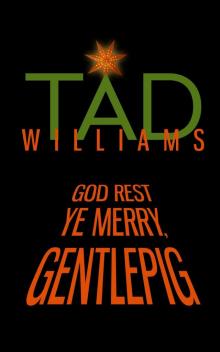 God Rest Ye Merry, Gentlepig
God Rest Ye Merry, Gentlepig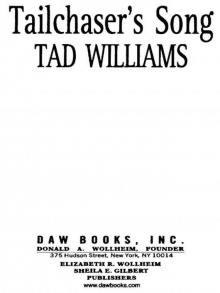 Tailchaser's Song
Tailchaser's Song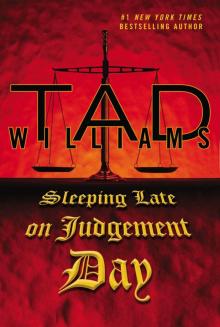 Sleeping Late on Judgement Day
Sleeping Late on Judgement Day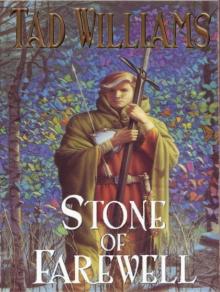 Stone of Farewell
Stone of Farewell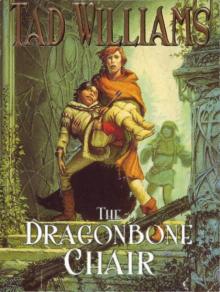 The Dragonbone Chair
The Dragonbone Chair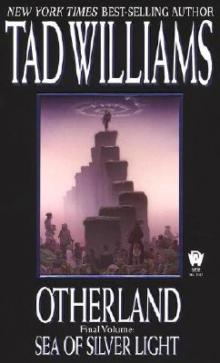 Sea of Silver Light
Sea of Silver Light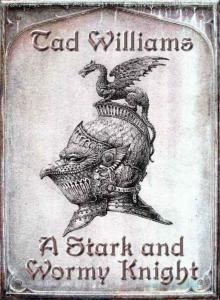 A Stark and Wormy Knight
A Stark and Wormy Knight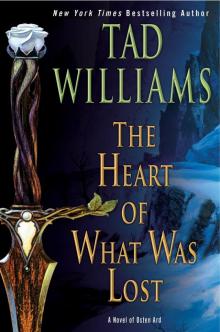 The Heart of What Was Lost
The Heart of What Was Lost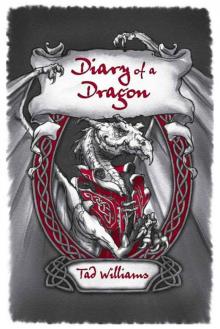 Diary of a Dragon
Diary of a Dragon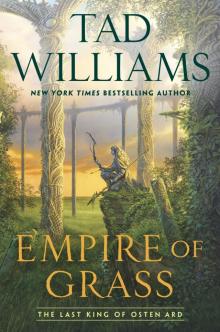 Last King of Osten Ard 02 - Empire of Grass
Last King of Osten Ard 02 - Empire of Grass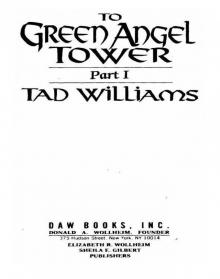 To Green Angel Tower, Volume 1
To Green Angel Tower, Volume 1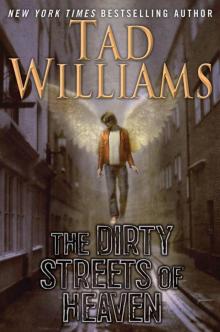 The Dirty Streets of Heaven
The Dirty Streets of Heaven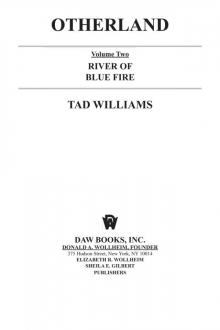 River of Blue Fire
River of Blue Fire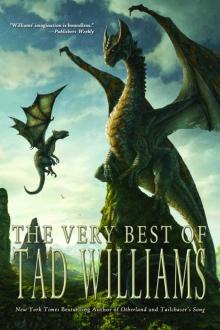 The Very Best of Tad Williams
The Very Best of Tad Williams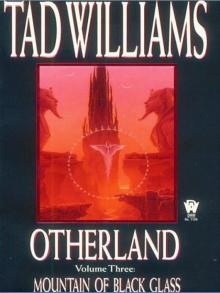 Mountain of Black Glass
Mountain of Black Glass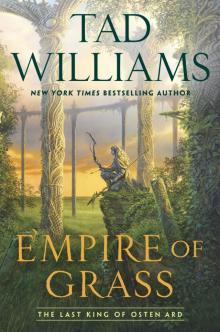 Empire of Grass
Empire of Grass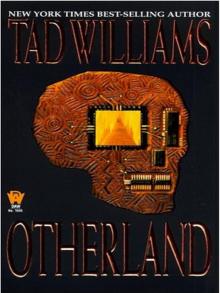 City of Golden Shadow
City of Golden Shadow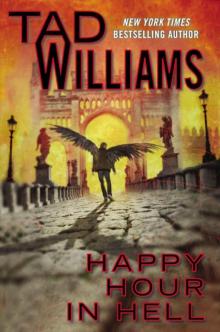 Happy Hour in Hell
Happy Hour in Hell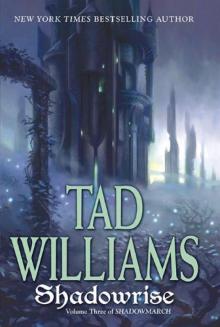 Shadowrise
Shadowrise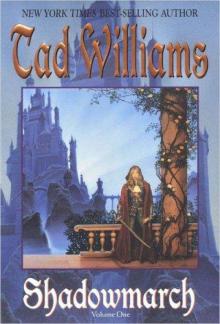 Shadowmarch
Shadowmarch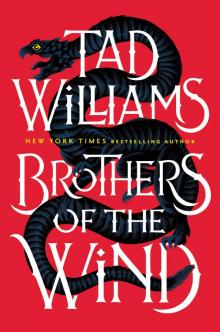 Brothers of the Wind
Brothers of the Wind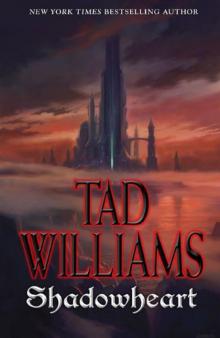 Shadowheart
Shadowheart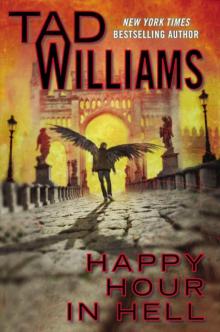 Bobby Dollar 02 - Happy Hour In Hell
Bobby Dollar 02 - Happy Hour In Hell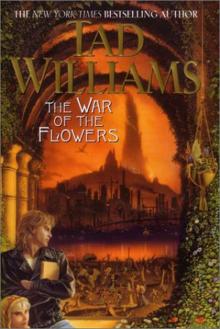 The War of the Flowers
The War of the Flowers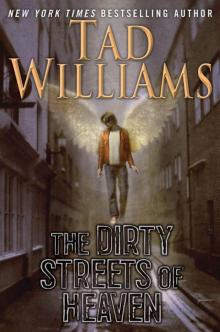 The Dirty Streets of Heaven bd-1
The Dirty Streets of Heaven bd-1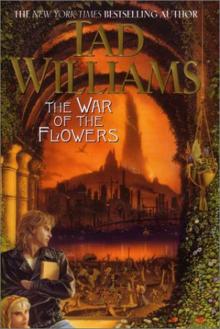 Tad Williams - The War of the Flowers (retail) (pdf)
Tad Williams - The War of the Flowers (retail) (pdf)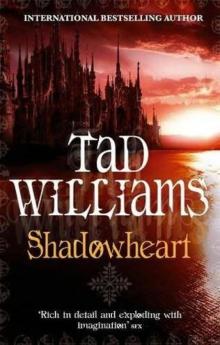 Shadowheart s-4
Shadowheart s-4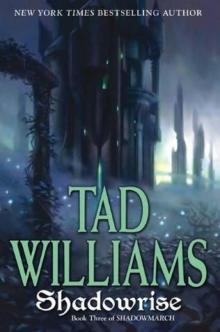 Shadowrise s-3
Shadowrise s-3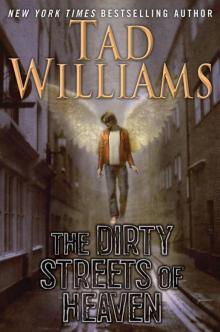 The Dirty Streets of Heaven: Volume One of Bobby Dollar
The Dirty Streets of Heaven: Volume One of Bobby Dollar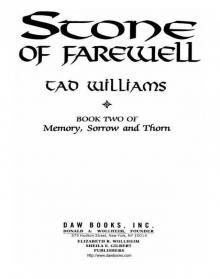 The Stone of Farewell
The Stone of Farewell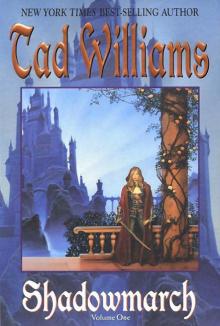 (Shadowmarch #1) Shadowmarch
(Shadowmarch #1) Shadowmarch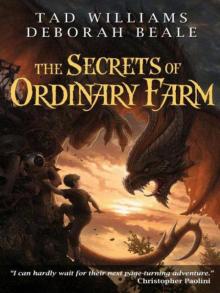 The Secrets of Ordinary Farm of-2
The Secrets of Ordinary Farm of-2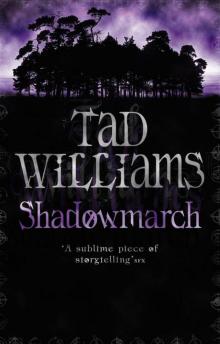 Shadowmarch s-1
Shadowmarch s-1![Bobby Dollar [04] God Rest Ye Merry, Gentlepig Read online](http://i1.bookreadfree.com/i1/04/06/bobby_dollar_04_god_rest_ye_merry_gentlepig_preview.jpg) Bobby Dollar [04] God Rest Ye Merry, Gentlepig
Bobby Dollar [04] God Rest Ye Merry, Gentlepig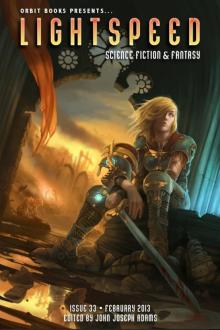 Lightspeed Issue 33
Lightspeed Issue 33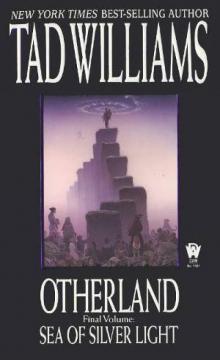 Sea of Silver Light o-4
Sea of Silver Light o-4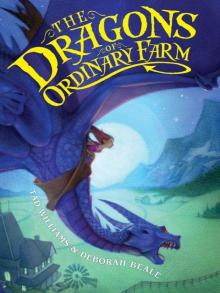 The Dragons of Ordinary Farm of-1
The Dragons of Ordinary Farm of-1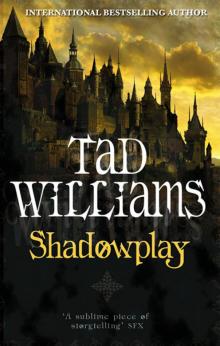 Shadowplay s-2
Shadowplay s-2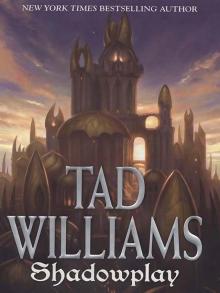 (Shadowmarch #2) Shadowplay
(Shadowmarch #2) Shadowplay